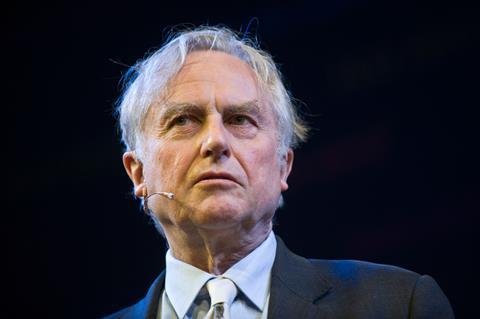Richard Dawkins shocked many by declaring himself a “cultural Christian” over the Easter weekend. Chine McDonald explains what it might mean

I’m sure there are prayer groups around the world who have been praying for Richard Dawkins’ soul for decades. Some of them might have thought their prayers had finally be answered, when over the weekend the evolutionary biologist said he was a Christian. Perhaps Professor Dawkins had in fact finally turned to the Lord after encountering God at Greenbelt 18 months ago?
Maybe – some may have thought – we’ll be hearing his testimony at other Christian festivals or in interviews soon.
Or maybe not. Because it turns out that Dawkins isn’t actually a fully paid-up follower of Jesus.
Well, what kind of Christian is he, then? A Methodist, an Anglican, a Pentecostal, an evangelical?
No, no, he’s a “cultural Christian”, as he told LBC. “I’m not a believer. But there’s a distinction between being a believing Christian and being a cultural Christian.”
What exactly does he mean?
Maybe dictionary definitions can help us here. A Christian (noun) is described as “a person who has received Christian baptism or is a believer in Christianity”, whereas Christian as an adjective describes “relating to or professing Christianity or its teachings”. In recent months, many of us have got excited about public intellectuals such as Tom Holland or Ayaan Hirsi Ali describing themselves essentially as cultural Christians. They are Christian adjectives rather than Christian nouns. They, like Dawkins, think Christianity is good for societies.
The concerning thing, however, is what lies under the surface.
Dawkins describes Christianity as a “decent” religion, and says that Islam is not. This might seem an obvious thing for Christians to think. For example, Theos, the organisation I lead, is committed to making the case for Christianity’s relevance and positive contribution to public life. We’re convinced Christian ideas (rather than the more generic ’religious ideas’) can help us meet some of the biggest challenges of our day. This is all well and good, but Dawkins’ mention of Islam in this context makes me wonder what else he has in mind.
In his LBC interview, Professor Dawkins went on to describe his love of hymns and carols; his sadness at the thought of cathedrals being closed down; and perhaps in the most telling description, said the UK is a Christian country in which he feels “at home”. I can’t help but fear, at this point, ‘Christianity’ is being equated with whiteness, and in particular, Englishness.
It brought to mind leaflets I used to see from the British Nationalist Party, which used similar rhetoric. “Keep Britain Christian” basically meant “keep Britain white”.
I can’t help but fear, at this point, ‘Christianity’ is being equated with whiteness
Elle Hardy, author of Beyond Belief: How Pentecostal Christianity is Taking Over the World, summed it up well when she wrote on Twitter:
The thing is Dawkins, and all the New Atheists getting into Christianity, is that they have a Disneyland idea of cathedrals and evensong that is vanishing. I suspect they’d feel as alien in a south London Nigerian Pentecostal church as they would in a mosque
— elle hardy (@ellehardy) April 1, 2024
The stories about public intellectuals professing cultural Christianity are fascinating. We’ve come a long way from the antagonism of New Atheism that made it its mission to denounce all religion, including Christianity. But I’ll save my excitement for when Dawkins et al start talking about the ways in which their lives have been turned upside down by the radical love of Jesus Christ.
They aren’t saying that. Or at least, they aren’t saying it yet.



































3 Readers' comments